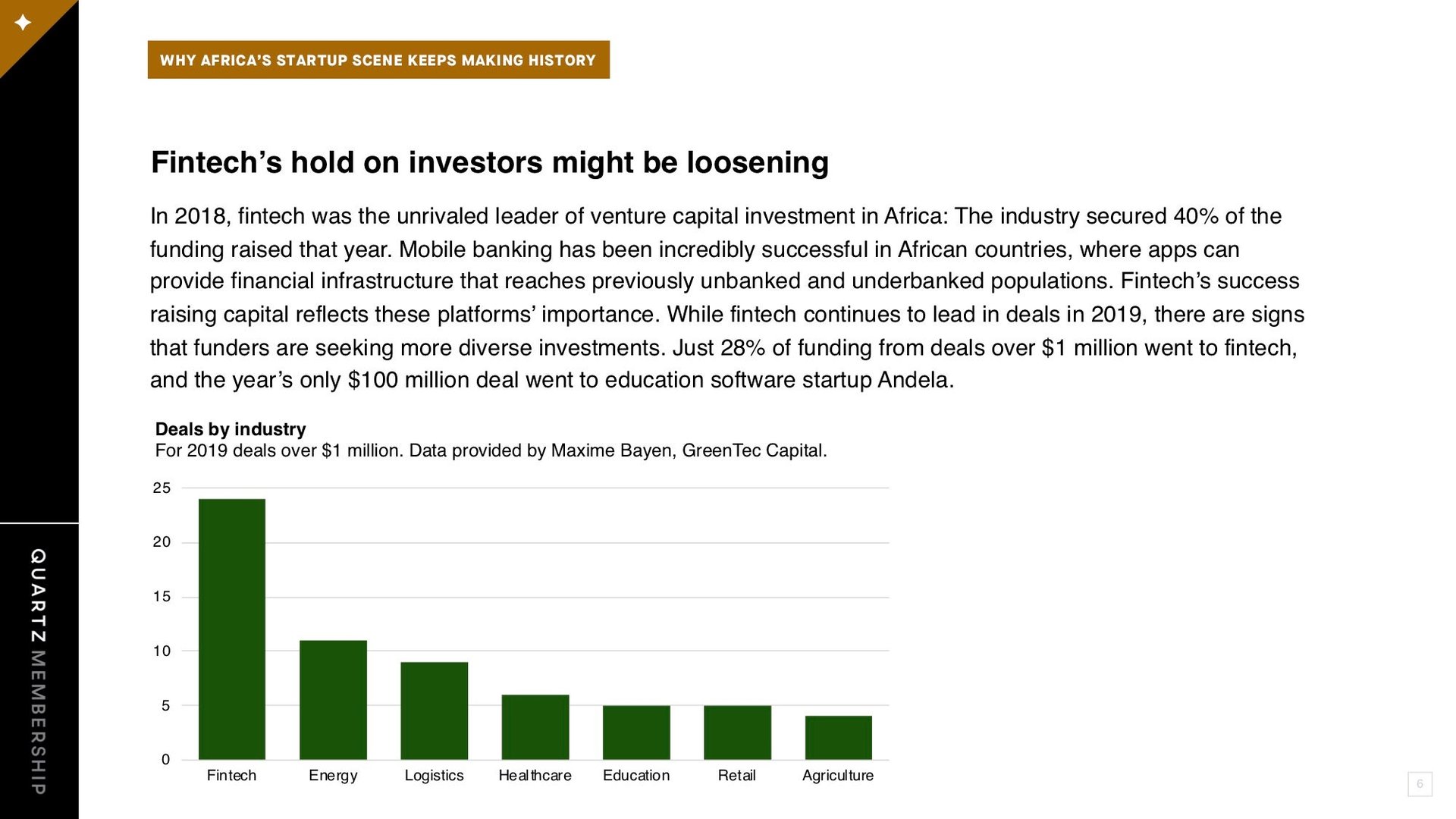For Quartz members—WeChat, African startups, and plastic
Dear members—

Dear members—
The Chinese-owned social media app TikTok has been drawing lots of negative attention of late from US regulators and media in particular. But its critics may be focusing on the wrong target.
WeChat, the messaging app owned by Tencent that has evolved into a full-blown publishing platform, is proving to be a particularly potent fount of misinformation and censorship, in part because of a unique built-in ecosystem. With more than one billion users worldwide, WeChat is not just essential to people living in China, it is also a vital source of news and information for the Chinese diaspora. And as the politicians eager to reach that diaspora are discovering, information can very quickly turn into disinformation, and worse.
Quartz’s Isabelle Niu traveled to Australia, where the two major political parties embraced WeChat in the 2019 national election to win over the key demographic of ethnic Chinese voters. She dug into what happened there, and what’s happening in other countries like Canada, the UK and the US. Her report is a sobering one.
QUARTZ PRESENTS
As Quartz readers, you’re well aware of the growing interest in innovation and entrepreneurship in Africa.
This week, we’re looking to wrap some hard numbers around that activity with a presentation on Africa’s startup scene. The amount raised this year by startups is set to break the records set last year, in part thanks to growing institutional support. But it’s also worth noting that African founders and their investors are building a network of startups that spans industries and the continent.
Here’s one slide showing how sectors like energy are drawing investor attention, even as Africa’s fintech ecosystem, especially mobile banking, continues to be popular.

You can view all of our presentations, which we produce exclusively for members, here. They’re designed to give you a fast read on a topic, which you can reformat and edit as you wish.
THE PLASTICS BOOM
I hope you’ve enjoyed this week’s field guide to the boom in plastic. Put simply, we’re awash in plastic. More than half of all plastic ever created was produced in the last 15 years, and the rate of plastic production will grow by another third over the next five years. All this plastic production (and disposal) produces almost twice the greenhouse emissions of the entire aviation sector. And our ability to safely dispose or recycle the material is limited to nonexistent.
Join Quartz reporter Zoë Schlanger and science editor Katie Palmer on a call at 11am ET today to discuss what all this plastic means for our health and the planet, and what can be done to staunch the flow.
We’ll be taking questions and comments live on the video conference call at this time, accessible at the usual location. You can also send questions in advance to [email protected].
If you’d like to dial in, use the following numbers:
UK: 0800-014 8469
For all of the numbers, the access code is 722 994 440. And you can find recordings of our past video calls here.
With best wishes for a relaxing and thought-filled weekend.
Xana Antunes